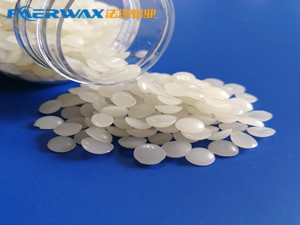Fischer-Tropsch wax: a sustainable alternative to polyethylene wax
Due to its excellent lubrication properties and compatibility with a wide range of materials, polyethylene wax has long been the first choice in various industries. However, as the demand for more sustainable and environmentally friendly alternatives continues to increase, companies are turning to Fischer-Tropsch wax as a viable alternative.
Fischer-Tropsch wax: a sustainable alternative to polyethylene wax, derived from the Fischer-Tropsch process, is a synthetic hydrocarbon wax known for its high melting point, low viscosity and excellent hardness. The wax is produced through a series of chemical reactions that convert carbon monoxide and hydrogen into a liquid hydrocarbon mixture. Therefore, Fischer-Tropsch waxes offer a more sustainable option compared to traditional petroleum-based waxes such as polyethylene.
Replacing polyethylene wax with Fischer-Tropsch wax offers several advantages, the most notable being its environmentally friendly properties. Unlike polyethylene, which is made from non-renewable fossil fuels, Fischer-Tropsch wax is derived from natural gas or biomass, making it a more sustainable option. By using Fischer-Tropsch wax, companies can reduce their carbon footprint and contribute to a greener future.
In addition, Fischer-Tropsch wax offers improved technical properties, making it an attractive alternative. Its high melting point ensures stability and heat resistance, thereby improving performance, especially in applications with large temperature changes. In addition, this wax has excellent hardness and low viscosity, making it ideal for a variety of industries that require strong and durable materials, such as plastics, adhesives, coatings and rubber manufacturing.
The use of Fischer-Tropsch wax also provides companies with opportunities to meet increasingly stringent regulatory requirements. As environmental regulations from governments around the world become more stringent, the adoption of sustainable alternatives is critical for industries that aim to comply with these standards. Replacing polyethylene wax with Fischer-Tropsch wax not only helps meet regulatory requirements but also helps companies improve their corporate image by demonstrating their commitment to sustainability.
In addition, Fischer-Tropsch waxes have better compatibility with other additives and materials than polyethylene waxes. Its unique chemical composition blends better with various substances to provide enhanced functionality and performance. This compatibility makes Fischer-Tropsch wax a versatile choice for a variety of applications, from plastics and rubber processing to printing inks, paints and coatings formulations.
It is worth noting that the transition from polyethylene wax to Fischer-Tropsch wax may require some adjustments to the production process. The two waxes have different physical and chemical properties, which may require fine-tuning of certain manufacturing parameters. However, the benefits and potential rewards of switching to Fischer-Tropsch wax far outweigh the initial adaptation effort.
In summary, Fischer-Tropsch waxes represent a sustainable alternative to polyethylene waxes, offering many advantages such as increased sustainability, improved technical performance, compliance with regulatory requirements, and enhanced compatibility. As industries continue to prioritize environmental responsibility, adopting Fischer-Tropsch waxes can pave the way for a green future while maintaining high performance and functionality.
Post time: Nov-20-2023


